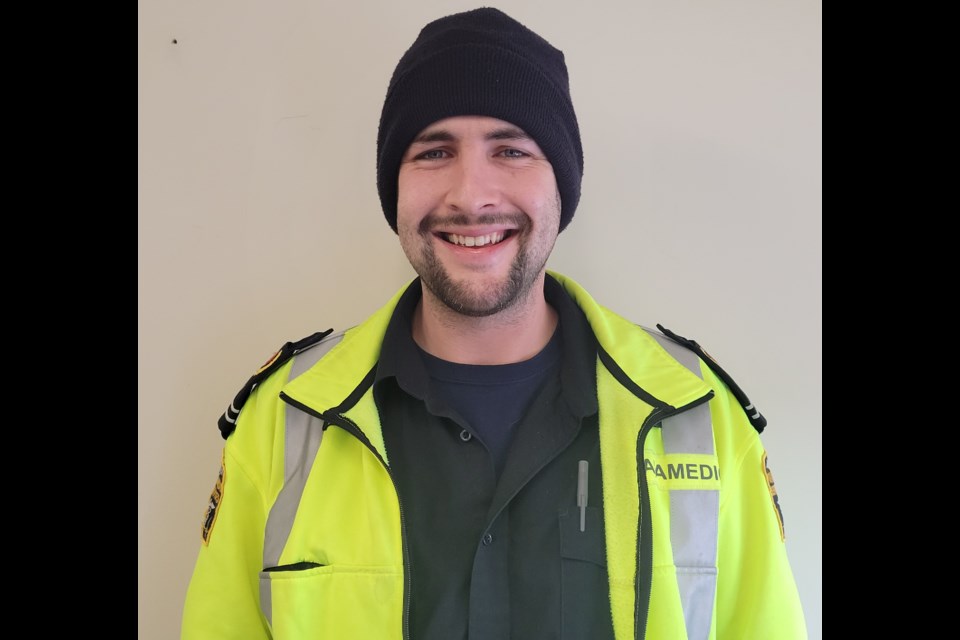York Region paramedic Jeremy Aucoin said it has not been easy finding the mental health help he has needed.
As the COVID-19 pandemic increased his workload in 2020, he started having stress responses and breaking down after work at a busy Richmond Hill unit.
With only $1,000 in mental health benefits, he said he made a WSIB claim to get treatment, but was denied and had to take a partially paid three-month leave during which he paid for his treatment. He then switched to a community paramedic role in Newmarket, temporarily getting off the frontlines.
He said an evaluation confirmed his injury was work-related, but that he ultimately felt unsupported.
“I was extremely burnt out,” he said. “Stress injury, major depressive disorder. It is specifically tied to my workload, the pandemic, the disproportionate responsibility that kind of fell on my shoulders."
York Region paramedics are expressing concern about how the pandemic is exacerbating ongoing staffing and support issues. Across the province, paramedics have raised alarm bells about how the latest wave of the pandemic is straining the system, with units in Durham and Toronto reporting instances where there were no paramedics on call available.
Canadian Union of Public Employees Local 905 represents York Region’s paramedics. President Katherine Grzejszczak said although York has yet to encounter a situation like that, they do find themselves regularly facing down-staffing, meaning they are addressing calls in other jurisdictions.
“It means the paramedics that are at work have a much higher workload. It means that residents are having to wait longer for response to 911 calls,” Grzejszczak said. “It’s made a long-standing issue basically impossible to sustain."
York Region Paramedic Services Chief Chris Spearen said staffing has been a challenge due to isolations, COVID-19 sick time and recruitment challenges. But he said from late 2020 to the end of 2021, the service has welcomed 124 new service members.
"Similar to other frontline staff and health-care partners, our staff are fatigued but continue to work tirelessly, take on additional shifts and provide high-quality care to patients," he said.
Grzejszczak said mental health injuries are also a significant concern, and their benefits do not go far enough. She said an internal survey found 83 per cent of respondents indicate workload is harming their health.
“We’re just seeing people emotionally distressed, that they can’t continue coming into work, and that is a huge contributing factor to the down-staffing,” she said.
Grzejszczak said it is a systematic issue, with links to other problems. For instance, she said a lack of available nurses can hold up paramedics at a hospital.
The Ministry of Health could stand to put more funding into the paramedic sector, and York Region should provide better mental health benefits, she said.
“We want to be able to do our job more than anything else, and I think frontline workers, and I think frontline staff, are just crying out for the support," she said.
Spearen said staff are encouraged to access supports through a corporate family assistance program and York Region's paramedic peer support team, dedicated to provide mental first aid. He also noted workers are covered under WSIB and there are outside support programs available.
Aucoin said his WSIB application was rejected due to the injury resulting from employer management. A clause in the Worker Safety and Insurance Act states that a worker is not entitled to benefits from mental stress caused by decisions or actions of the worker's employer, relating to the worker's employment.
Aucoin said he has got to a better place. He said he hopes he can be ready when the time comes but believes York Region is ”two-faced” on mental health help.
“I was always seeing posters and things, emails on how to recognize injuries and take care of yourself,” he said. “But when it actually came to addressing an injury and actually getting support, there was no tangible support.”

